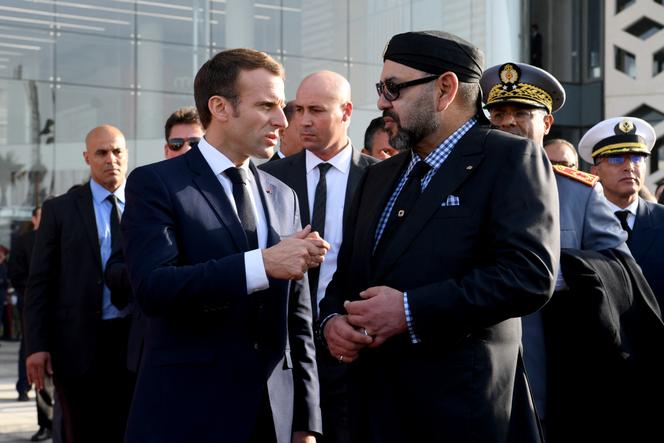


It's a turning point in French diplomacy, and one that risks sparking new tensions with Algeria. Paris has just recognized Morocco's 2007 Western Sahara autonomy proposal as "the only basis for achieving a just, lasting and negotiated political solution in accordance with the resolutions of the United Nations Security Council," according to a letter by French President Emmanuel Macron addressed to Moroccan King Mohammed VI, which was made public by the Elysée on Tuesday, July 30. Without going so far as to use the term "Moroccan Sahara," Macron specified that "the present and future of Western Sahara fall within the context of Moroccan sovereignty." Macron also emphasized "the intangibility of the French position on this issue of national security for [the] Kingdom." "It's time to move forward," writes the president: "I therefore encourage all parties to come together with a view to a political settlement, which is within reach."
The French announcement "constitutes an important and significant development in support of Moroccan sovereignty over the Sahara," hailed the royal cabinet on Tuesday. As early as Monday evening, when rumors were swirling about the change in France's position, the head of diplomacy for the Sahrawi independence movement, the Polisario Front, expressed his dissatisfaction in a statement published by the Sahrawi news agency SPS, saying that "by officially declaring its support for 'the Moroccan autonomy plan' these past days, what France is supporting is the violent and illegal occupation of Western Sahara."
Up until now, France had only considered the Moroccan proposal to be "a serious and credible basis for discussion" aimed at resolving the issue, but not the "only" basis. According to the Elysée, there have been no other credible proposals put on the table in recent years, and the 2007 plan is the subject of a growing consensus among the international community, particularly in Africa since Morocco rejoined the African Union in 2017.
The presidential letter was careful to refer to the UN Security Council's resolutions, which still provide for the highly theoretical prospect of a self-determination referendum in this 266,000-square-kilometer territory, a former Spanish colony that Morocco took control of in 1976, after the withdrawal of Madrid. Paris' gesture nevertheless represents a major concession to Rabat's demands.
For the French, the field of possibilities has therefore been narrowed down to the prospect of autonomy under de facto Moroccan sovereignty. In other words, unofficial, if not explicit, recognition of the territory's "Moroccanness." Algeria, a long-standing supporter of the Polisario Front's Sahrawi independence struggle, had, on July 25, warned Paris against any shift in its position in favor of Moroccan interests. In the difficult balance that the French diplomatic corps has been striving to achieve between the two North African "enemy brother" countries, France is henceforth ostensibly drawing closer to Morocco – with which relations had been frosty from the summer of 2021 to the summer of 2023 – at the risk of provoking a new crisis with Algeria.
You have 65.69% of this article left to read. The rest is for subscribers only.
